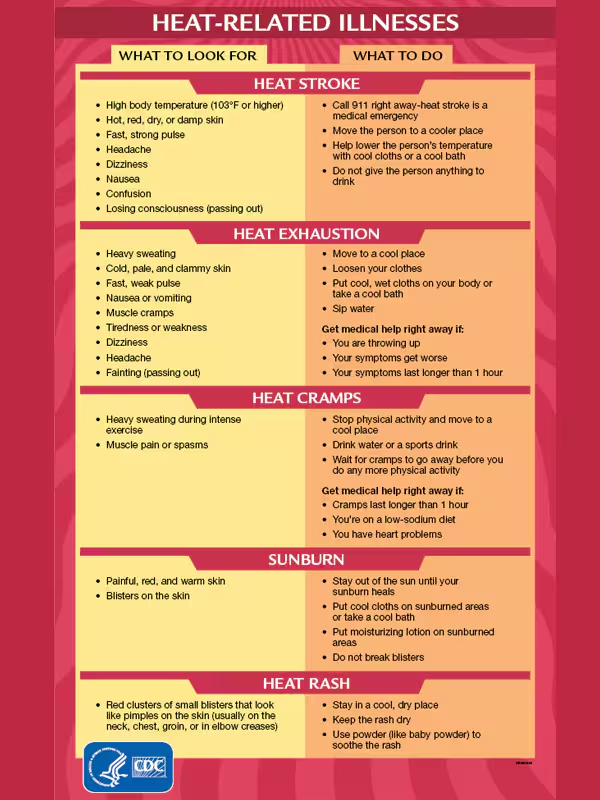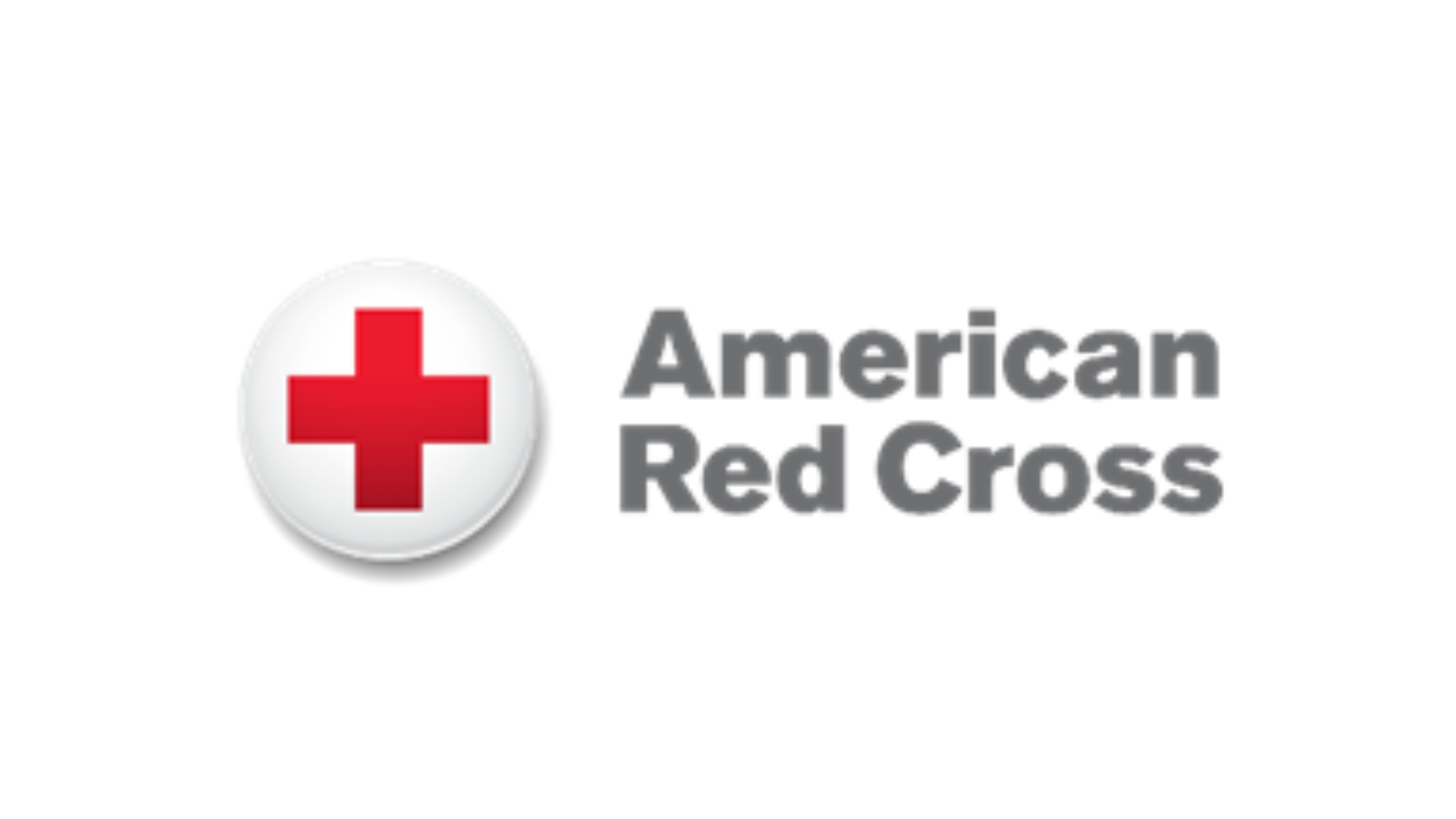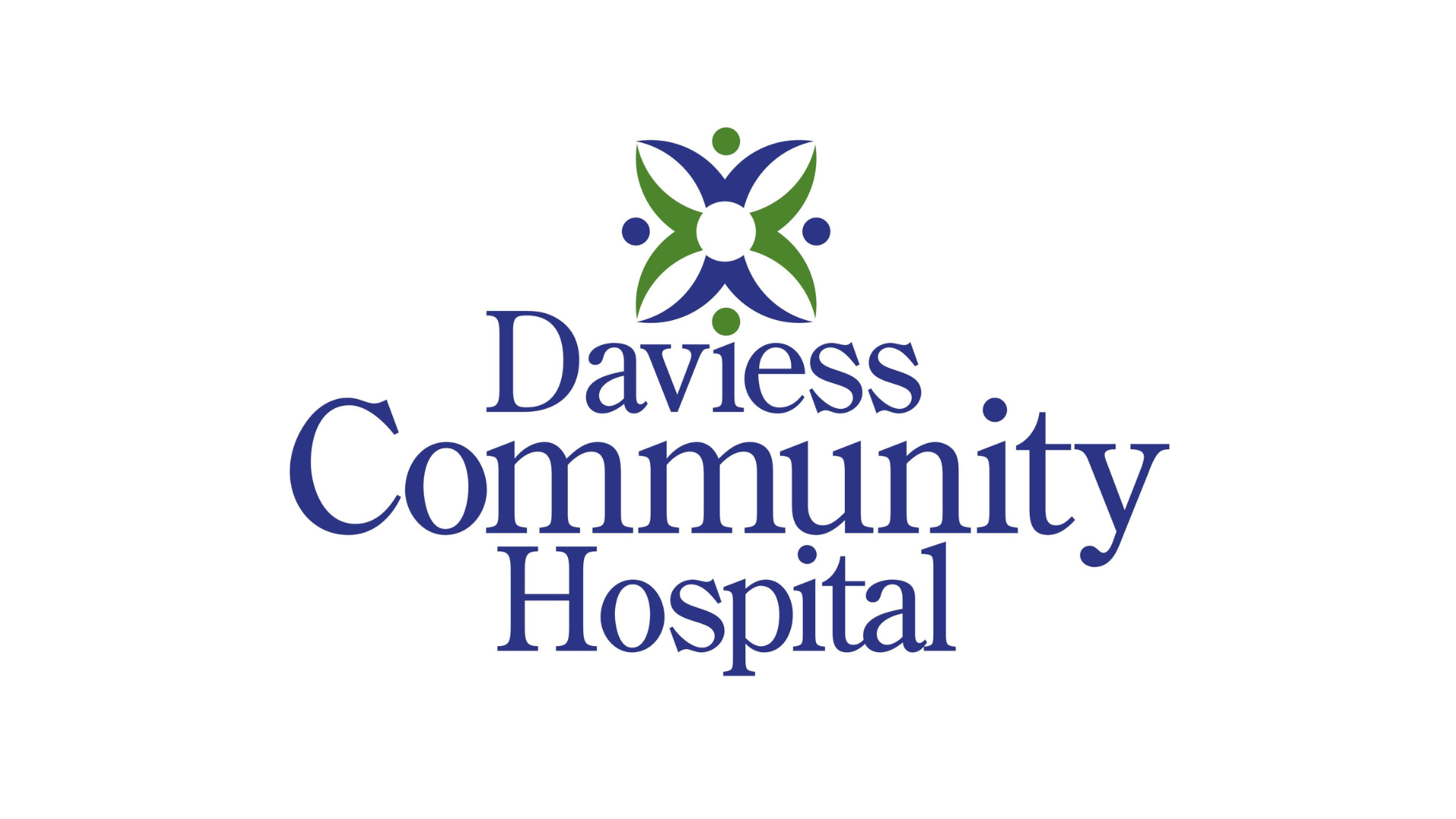With summer approaching and warm temperatures expected soon, it’s important to prepare for extreme heat. Here are some tips on staying safe during extreme heat and recognizing different types of heat-related illnesses

Stay Hydrated
- Drink plenty of fluids and encourage others to do the same.
- Replace salt and minerals with snacks or sports drinks.
Stay Cool
- Stay in air-conditioned places as much as possible. If you don’t have air conditioning, go to a designated cool location.
- Wear lightweight, loose clothing and take cool showers or baths.
- Limit outdoor activities to early morning or late evening.
Prevent Heat Illness
- Check on friends, family, and neighbors, especially those at higher risk: older adults, young children, pregnant women, people with medical conditions, outdoor workers, and those with limited resources or no green spaces.
- Act quickly if you notice symptoms of heat illness.
Recognizing and Treating Heat-Related Illnesses

Heat Cramps
- Symptoms: Heavy sweating and muscle pain or spasms.
- Action: Move to a cool place, drink water or a sports drink. Seek medical help if cramps last more than an hour or if the person has a heart condition.
Heat Exhaustion
- Symptoms: Heavy sweating, cold and clammy skin, fast weak pulse, nausea, muscle cramps, tiredness, dizziness, headache, fainting.
- Action: Move to a cool place, loosen clothing, cool the body with wet cloths or a cool bath, sip water slowly. Seek medical help if vomiting occurs, symptoms last more than an hour, or confusion develops.
Heat Stroke
- Symptoms: High body temperature (104°F or higher), hot red skin, strong pulse, headache, dizziness, nausea, confusion, fainting.
- Action: Call 911 immediately. Move the person to a cool place, cool the body with wet cloths, misting, fanning, or a cool bath. Do not give anything to drink.
For more information visit the CDC’s page for extreme heat.




